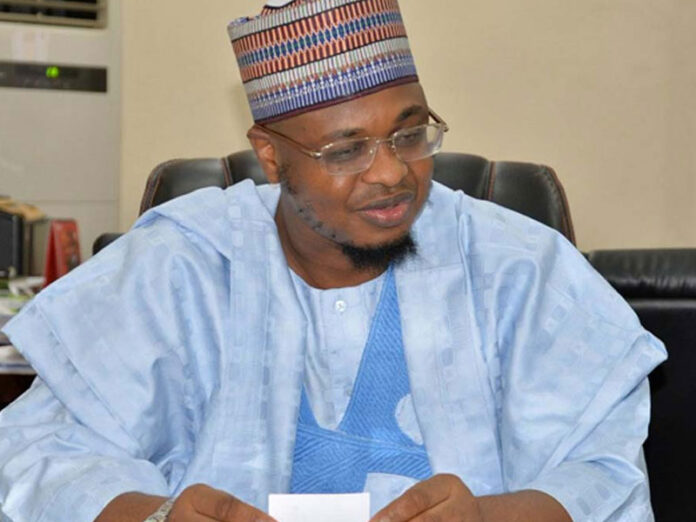
…As NIN enrolments reach 61 million
The Federal Ministry of Communications and Digital Economy has said the Information and Communications Technology (ICT) sector alone generated a total of N1.054 trillion for the federal government, within a space of two years.
The money was generated between August 2019 and July 2021, from across all ICT agencies and parastatals, under the supervision of the Minister of Communications and Digital Economy, Dr. Isa Ibrahim Pantami.
The ICT agencies and parastatals include: Nigerian Communications Commission (NCC), National Information Technology Development Agency (NITDA), Nigerian Communications Satellite Limited (NigComSat), Galaxy Backbone, Nigerian Postal Service (NIPOST) and National Identity Management Commission (NIMC).
The Federal Ministry of Communications and Digital Economy (FMCDE), revealed this in its recent scorecard, which highlighted the statistics of some major achievements of President Muhammadu Buhari’s administration, through the national policies and supervision of parastatals of the ministry, under the leadership of Pantami, since he resumed office on August 21, 2019.
The scorecard also revealed that NIMC attained over 61 million enrolments for the National Identification Number (NIN), as at August 11, 2021, up from 42 million in September 2020.
A breakdown of the total N1.054 trillion revenue generated from ICT in two years, showed that over N358.8 billion was generated as revenue largely from the sales of spectrum licences allocated by the National Frequency Management Commission (NFMC) to the Nigerian Communications Commission and the National Broadcasting Commission (NBC), for commercial purpose. It also showed that over N601.6 billion was generated as revenue from taxes paid by ICT companies to the account of the federal government, remitted through the Federal Inland Revenue Service (FIRS), while over N94 billion was generated as revenue for the federal government and approved by the National Assembly members, in line with relevant laws, as part of the 2020 appropriation for personnel, capital projects, capacity building interventions, among others.
According to the scorecard, “Over the last two years, a significant number of national policies have been developed to create an enabling environment for the sustainable growth of the Communications and Digital Economy sector. This has led to the resolution of challenges that had lingered for close to a decade. Sixteen of these national policies have been developed and over a dozen of them are already being implemented. As part of the implementation of the policies, over 1,667 projects/centres have been established, and an additional 455 are ongoing.”
Telecommunications alone, which is part of ICT, has also contributed immensely to Nigeria’s Gross Domestic Product (GDP). The contribution of the telecommunications sector to Nigeria’s GDP, however, doubled in the last eight years, according to data obtained from the website of the Nigerian Communications Commission, the telecoms industry regulator.
According to the statistics, telecoms contribution to GDP in 2012 was 7.7 per cent, but the figure doubled to 14.3 per cent as at the second quarter in 2020.
The statistics indicated that telecoms contribution to GDP had maintained a steady growth rate between 2012 and 2020, except for 2013, when there was a slight drop in the contribution, compared to the contribution in 2012.
The statistics showed that in 2012, telecoms contribution to GDP was 7.7 per cent and in 2013, the contribution dropped slightly to 7.4 per cent, but it picked up again in 2014, contributing 7.6 per cent to GDP. In 2015, telecoms contribution to GDP further increased to 8.5 per cent and it had another increase in 2016, contributing 9.13 per cent. In 2017, it contributed 8.7 per cent to GDP and in 2018, telecoms contribution to GDP grew to 9.9 per cent.
In 2019, telecoms contribution to GDP grew again to 10.6 per cent and in 2020, as at second quarter, telecoms contribution to GDP, reached 14.3 per cent, representing N2.3 trillion, whereas the entire contribution of ICT to GDP within the same period was 17.5 per cent.
Impressed by the contribution of telecoms to GDP, the Executive Vice Chairman of the Nigerian Communications Commission, Prof. Umar Garba Danbatta, said the commission would continue to roll out initiatives and implement government policies in such a way that the sector would continue to grow the country’s GDP.
Kindly contact us @ Naijalivetv@gmail.com
Call or Whatsapp: 07035262029, 07016666694, 08129340000




